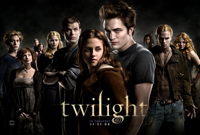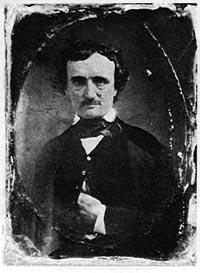Submitted by Alex Case:
New UK website cracks down on PR-driven journalism
Miami Herald
February 24, 2011
London (AP) — Hoax articles and lazy journalists are being pushed into the spotlight by a new website that aims to expose news outlets that regurgitate press releases – a practice known as “churnalism.”
Churnalism.com, launched by the Media Standards Trust charity, allows users to copy and paste content from news releases and compare it with articles published by British news outlets to see which reporters are less proactive and more reactive in searching for news.
Media Standards Trust director Martin Moore says the site is meant to be an “accountability tool” and would ruffle some feathers in the media.
He said Thursday that with more resources and exposure, he hopes the site can eventually expand to other countries like the United States.


 Jordan Scott claims mega-best-selling author Stephenie Meyer stole some plot ideas for her teenage vampire romance series.
Jordan Scott claims mega-best-selling author Stephenie Meyer stole some plot ideas for her teenage vampire romance series. It’s 2 o’clock in the morning in London as my email comes breezing in to interrupt John Olsson’s musings. Olsson interests us because he’s an expert at digging out the secrets of deceptive documents, anything from anonymous hate mail to plagiarized books.
It’s 2 o’clock in the morning in London as my email comes breezing in to interrupt John Olsson’s musings. Olsson interests us because he’s an expert at digging out the secrets of deceptive documents, anything from anonymous hate mail to plagiarized books. Cheats and liars. They make life interesting, and they hold up a mirror for those of us poised to cast the first stone.
Cheats and liars. They make life interesting, and they hold up a mirror for those of us poised to cast the first stone. This year is the 200th anniversary of the birth of Edgar Allan Poe. If you keep track of these things, you’re no doubt amazed at the creative ways people find to connect to the master of the macabre. The calendar is cluttered with related events put on by institutions, communities and individuals nationwide.
This year is the 200th anniversary of the birth of Edgar Allan Poe. If you keep track of these things, you’re no doubt amazed at the creative ways people find to connect to the master of the macabre. The calendar is cluttered with related events put on by institutions, communities and individuals nationwide.